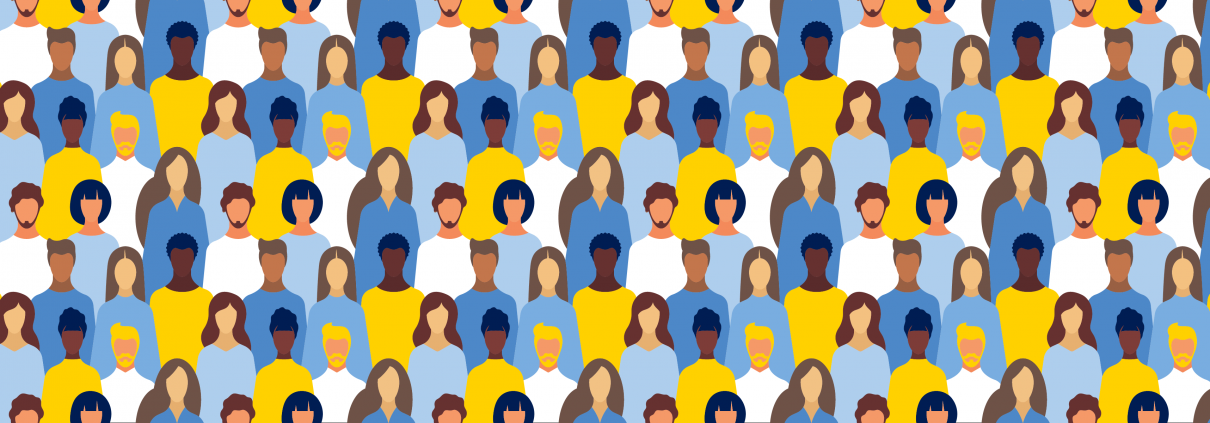ALLEA Announces First Results of Support Programme for Ukrainian Science
The European Fund for Displaced Scientists Programme (EFDS) was set up to provide financial support for Ukrainian scientists and institutions that have been affected by the war. A total of up to 100 Ukrainian scientists will benefit from the programme.
Last March, ALLEA, the European Federation of Academies of Sciences and Humanities, announced the launch of the European Fund for Displaced Scientists Programme (EFDS) to assist the Ukrainian scientific community as a response to the ongoing Russian invasion. The programme was set up in partnership with the Breakthrough Prize Foundation who donated USD1.5 million for the launch of the programme.
The EFDS Programme consists of two separate funding lines: Funding Line 1 provides funds to academic institutions within the Council of Europe region that are able to host displaced scholars from Ukraine; Funding Line 2 provides funds to Ukrainian academic institutions for the continuation and/or reinstatement of their scientific operations and research collaborations, as well as to support initiatives that facilitate the reintegration of researchers upon their return to Ukraine. A total of up to 100 Ukrainian scientists will benefit from the EFDS Programme through the combined funding of both lines.
ALLEA President Antonio Loprieno stated that “the remarkably large number of applications received by ALLEA under both funding lines is a clear indication of the need that exists for the EFDS Programme and similar schemes to assist Ukraine’s research community, particularly for institutions within Ukraine to support the country’s effort to maintain its scientific operations and avoid an irreversible loss of talents and skills.”
Under Funding Line 1, financial support was provided to set up new or maintain existing positions for displaced researchers from Ukraine during the war. Institutions were eligible to apply for up to €25,000 for a period of 12 months. ALLEA received a total of 244 applications from 23 countries under this Funding Line, of which 35 beneficiaries were finally selected due to funding limitations. The grants will be distributed to academic institutions from eleven different countries, including Austria, France, Germany, Hungary, Italy, Latvia, the Netherlands, Poland, Portugal, Spain, and Sweden.
The application process took into account the measures planned by the host institutions to avoid brain drain and support the beneficiaries to return and reintegrate into the Ukrainian academic system upon completion of the hosting arrangement. Particular attention was given to scholars from areas that had been most affected by the war or that were under ongoing fire. Priority was also given to scholars who are affiliated with institutions that had to relocate as a result of the war or institutions with heavily damaged research infrastructure, which would make it impossible for them to continue their research work in Ukraine.
Under Funding Line 2, Ukrainian institutions were eligible to apply for up to €75,000 for a period of 12 months. ALLEA received a total of 105 applications from 89 institutions within Ukraine. Of these, 6 applications were selected, which will directly support a total of 64 Ukrainian scientists from both the university and the academy sector to continue their work in Ukraine. Funds will mainly be used to cover the costs of institutional staff and to purchase critical research equipment and materials.
The evaluation and selection process for both funding lines was carried out by an independent selection committee composed by senior officials from international and pan-European scientific institutions representing universities, funding organisations and researchers, including the European Research Council, the European University Association, the Global Young Academy, and Science Europe.
More information about the EFDS programme can be found here.
__
About ALLEA
ALLEA is the European Federation of Academies of Sciences and Humanities, representing more than 50 academies from about 40 countries in Europe. Since its foundation in 1994, ALLEA speaks out on behalf of its members on the European and international stages, promotes science as a global public good, and facilitates scientific collaboration across borders and disciplines.
For media inquiries
Emily Pollak
Corporate Communications Officer




